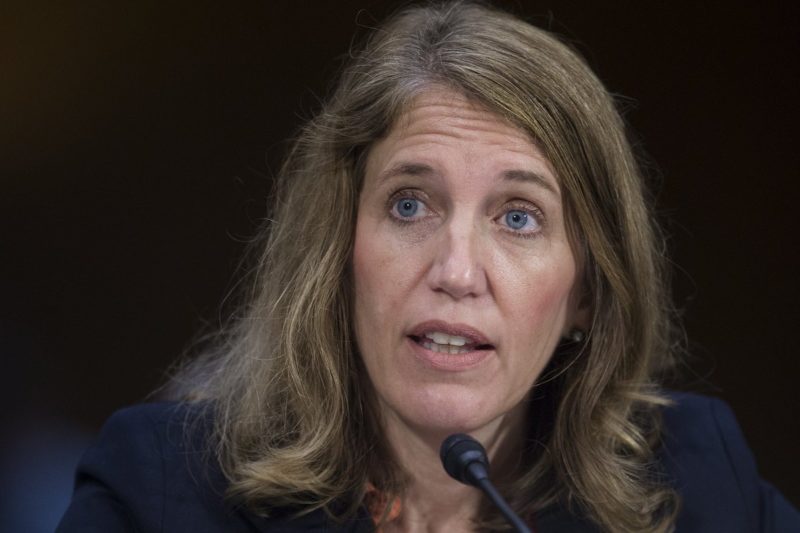Zika Response ‘Sits Squarely With Congress’ After Administration’s Last-Ditch Effort
“Our nation’s ability to mount the type of Zika response that the American people deserve sits squarely with Congress," HHS Secretary Sylvia Mathews Burwell wrote in a letter to House Minority Leader Nancy Pelosi (D-CA).

The Obama administration’s decision to direct $81 million toward the development of a Zika vaccine pits congressional Republicans and Democrats against each other—and leaves the country no closer to a solution.
Republicans in the U.S. House of Representatives seized on the announcement Thursday afternoon to contend that federal agencies have funds at their disposal to fight Zika. The head of the U.S. Department of Health and Human Services (HHS), however, dispelled that notion as she described shifting $34 million within the National Institutes of Health and transferring $47 million to the Biomedical Advanced Research and Development Authority, both of which would have run out of Zika funds by the end of the month.
“With the actions described above, we have exhausted our ability to even provide short-term financing to help fight Zika,” HHS Secretary Sylvia Mathews Burwell wrote in an August 11 letter to House Minority Leader Nancy Pelosi (D-CA). “Our nation’s ability to mount the type of Zika response that the American people deserve sits squarely with Congress.”
The administration in April pledged $589 million, the bulk of which came from funding to halt spread of the Ebola virus, for “immediate, time-critical activities” to combat the Zika virus. Those funds have been nearly exhausted, Burwell said in an August 3 letter to congressional Democrats on the appropriations committees.
Congress returns September 6 after a seven-week recess in which Democrats in the House and U.S. Senate repeatedly called on lawmakers to return to Washington and get a Zika deal done. Republican leaders refused, blaming Senate Democrats for obstructing a GOP-engineered $1.1 billion plan prior to the recess. The plan underfunded the administration’s $1.9 billion target and included contraception restrictions for a virus that can be sexually transmitted.
Zika causes microcephaly, an incurable neurological disorder that impairs brain and skull growth in utero, as well as other severe fetal brain defects, according to the U.S. Centers for Disease Control and Prevention (CDC). As of August 4, the CDC reported 510 cases in pregnant people living in the United States. Another 521 infections have occurred among pregnant people in U.S. territories.
Puerto Rico Faces Disproportionate Impact
Diagnoses are increasing by the day. As of August 10, the CDC reported 1,962 cases of Zika in the United States. All but seven of those cases are due to travel. That breakdown stands in sharp contrast to Puerto Rico, home to 6,475 locally acquired and just 30 travel-associated cases—in both instances, a few percentage points shy of all the Zika infections in U.S. territories.
The contraception restrictions in Republicans’ plan would hurt the people of Puerto Rico by limiting women to obtaining such services from public health departments, hospitals, and Medicaid Managed Care clinics. Such options are few and far between in the sprawling territory.
Republicans would also prohibit subgrants to outside groups “that could provide important services to hard-to-reach populations, especially hard-to-reach populations of women that want to access contraceptive services,” according to a Democratic summary Rewire obtained last month.
Nevertheless, Republicans continue to defend their plan amid criticism from Democrats and reproductive health-care groups that they’re again waging a war on Planned Parenthood. “[T]he words Planned Parenthood don’t appear anywhere in the law,” Sen. Marco Rubio (R-FL), referring to the plan, told Politico in an interview last week.
Rubio Targets Abortion Care
From the beginning, Rubio otherwise broke with his party, supporting the administration’s $1.9 billion plan without similar conditions in recognition that Zika would reach the shores of his home state. All six of the continental United States’ locally acquired Zika cases have occurred in Florida.
At the same time, Rubio had no problem with denying pregnant people infected with Zika access to abortion care.
“Obviously, microcephaly is a terrible prenatal condition that kids are born with. And when they are, it’s a lifetime of difficulties. So I get it,” he told Politico. “I believe all human life should be protected by our law, irrespective of the circumstances or condition of that life.”
Rubio’s comments put him in league with the Susan B. Anthony List, Americans United for Life, and other anti-choice groups that have framed abortion care in the context of Zika as eugenics. Anti-choice advocates have been increasingly using this argument, which hurts people with disabilities as much as pregnant people seeking abortion care, writer s.e. smith reported for Rewire.

